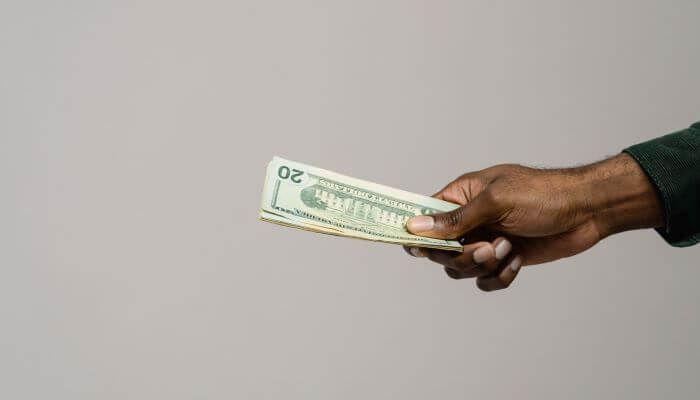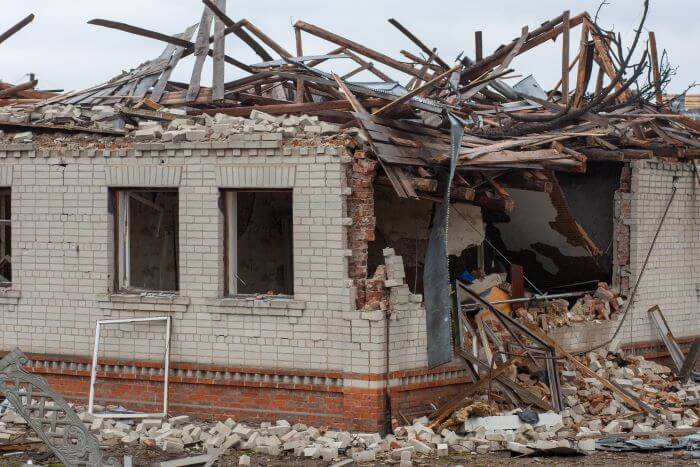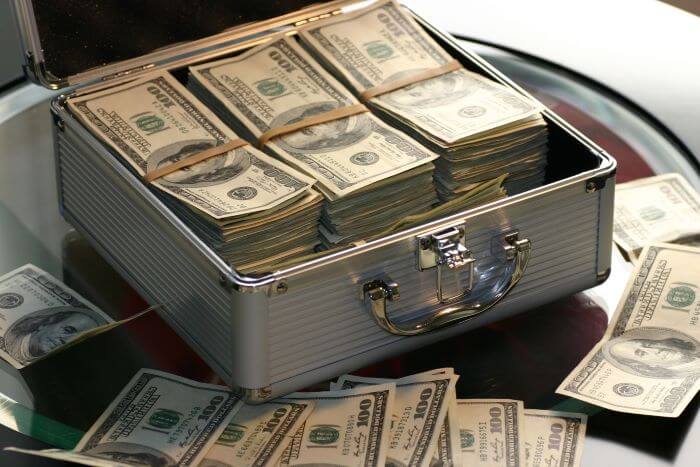In my guide for self-managing rental properties, I talk about 2 different styles of property management.
One of those property management styles included maximizing cash flow and property income.
So, in this post, we’re going to dive a little bit deeper with 5 tips you can use when trying to maximize the amount of money your rentals make.
The tips in this post are in no specific order.
If you’re currently a property owner looking for ways to maximize profit – I’d recommend focusing on only one of these tips at a time, especially with a good tenant.
If for some reason, you’d like to implement all of these tips at one time – it’s probably best to wait for new tenants so you don’t risk losing good tenants and creating vacancies just to make a little extra profit.
Table of Contents
1. Increase The Rent

The most obvious way to maximize rental income is to increase rental income. It doesn’t get much more straightforward than that.
Now, you can’t just increase the monthly rent when a tenant renews their lease/rental agreement. I mean – you can increase the rent but, without knowing what the rental market is like in your area, you run the risk of losing a good tenant (and finding good tenants is more difficult than keeping one).
I recommend you perform market research in your area and see what rent should be in your local area for a property similar to yours.
Once you know that info, you can see how your rental property compares and if you have room to increase the rent.
2. Prevent Emergency Repairs

One of the biggest areas that hurt your operating expenses and ability to maximize rental income is emergency repairs.
Emergency repairs are repairs that were not scheduled and typically need to be completed ASAP. A few examples of emergency repairs would be:
- Repairing a collapsed underground sewer pipe
- Fixing a leaking roof
- Fixing leaking pipes
- Diagnosing and fixing HVAC (especially on the hottest or coldest days of the year)
Emergency repairs are usually more expensive because they require immediate service (which pushes their scheduled appointments further back).
Although you can’t prevent all emergency repairs (which is why you should have a good amount of savings for cash reserves) – you can 100% make sure that you do the maintenance necessary to reduce the odds of it happening
I recommend doing as much preventative work as possible to prevent any emergency repairs while tenants are living in the property.
This one tip could save hundreds of dollars compared to waiting until something breaks and needs to be replaced immediately.
This is relatively simple to implement if you self-manage your rental property. However, if you have a property manager or property management company handling the management for you – you’ll need to talk with them and make sure they understand how important preventative maintenance is to you.
3. Provide Additional/Other Services
Providing additional services or paid amenities is something that I mainly see in apartment buildings, but it can be applied to your average rental property business as well.
A couple of examples of providing additional services include:
- If you accept pets in your rental unit, add a pet deposit and monthly fee for pet owners to increase cash flow and cover your property in case of potential damages later on.
- If you have extra storage space (like a shed or detached garage) – you can make more money by renting this unused storage space to a tenant. It’s a win-win situation. They get access to more storage space and you’re able to profit from space that would have gone unused.
- If you have a multi-family property with extra parking, you may be able to offer a tenant in the building some extra parking for an additional fee.
I recommend taking some time to look at your property as a whole and see if there are any additional amenities you could offer that would add value to your tenants and increase income.
4. Accept Rent Payments Online
One of my favorite ways for maximizing rental income is to accept rent payments online.
While not uncommon for property management companies in my area to accept rent payments online, many landlords have yet to adopt this,
Allowing tenants to pay online makes it extremely convenient for them. They can choose different payment methods like debit or credit cards. And, some online rent payment software helps to improve the credit score of your tenants.
I recommend using software such as Apartments.com Rental Manager.
When I first became a landlord several years ago, one of the first systems I put into action was online rent payments (using software called Cozy before Apartments.com bought them).
One of my favorite features, that I recommend all my tenants utilize, is to set up recurring rent payments so that they won’t even have to incur additional late fees (which get automatically added via the online payment software once the rent is late) or risk eviction due to forgetting to pay rent.
Before I purchased one of my properties, the tenant was used to mailing/meeting the previous landlord in order to pay her rent.
Not only was that a hassle for this particular tenant – but it made the entire process of collecting rent vulnerable to many variables.
- What if I get sick and can’t meet to pick up the rent?
- What if the post office loses the check in the mail? How will I know my tenant isn’t lying?
- What if we have extreme winter storms that prevent us from leaving the house for an extended period of time?
I didn’t have the answers to questions like those and, thankfully, I was familiar with paying my rent online when I was renting apartments.
So having my tenants pay rent online seemed like a no-brainer (and it’s worked out great so far).
5. Audit Your Rental Property
Another tip for maximizing rental income on your investment property is to audit what’s all included in the monthly rate and search for opportunities to improve efficiencies.
For example, let’s say you include heating in the monthly rent for your rental property.
If you were to audit your rental property, you would be looking for ways to reduce the heating bill.
This could include:
- Air sealing the attic and basement to reduce air leaks/drafts
- Adding additional insulation to reduce the amount of heat needed
- Installing insulation film over all windows during the winter
- Providing window treatments designed to reduce drafts
- Replacing your heating systems with more efficient units
Basically, I recommend you look for ways to make all of the services and ‘add-ons’ you provide as efficient as possible.
- If you’re paying for water at the property – optimize all faucets, toilets, etc…
- If you’re paying for electricity at the property – install led bulbs
- I think you get the idea…
While it may cost money upfront to improve things – it’s possible that you may make your money back within the first 12 months. However, until you audit the property and do the math – there’s no way to confidently know if, and what you improve.
